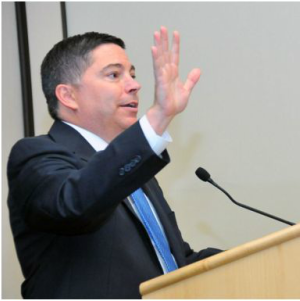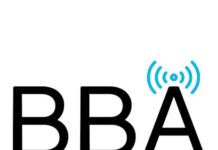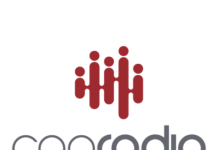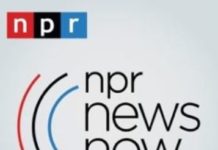
FCC Commissioner Michael O’Rielly said exactly what many NAB members wanted to hear, Thursday, when he spoke about the FCC’s ownerships rules. Many NAB members (iHeartMedia not included) have been pushing for more deregulation so radio can compete with Google, Facebook, and other digital companies that are stealing ad revenue.
O’Rielly said he recognizes that local advertisers do have the capability to purchase cheaper digital advertising and that is at the expense of traditional media, such as radio. “Let’s face it, Sirius XM or Pandora or a combined entity may not be headquartered in Concord, North Carolina, or Concord, New Hampshire, Massachusetts, California, Virginia, or Ohio. But a teacher can still access these stations while driving home from school after a long day. Broadly, this means that, given the extensive competition from new technologies, the current generation of legacy media will only flourish, and in some cases survive, if the government recognizes this marketplace reality and rejects asymmetric regulation of the broadcast industry.”
O’Reilly says, as a result, all media must be included in a market definition. He said it’s clear to him that radio is competing with the likes of Facebook and Google and that should be recognized in the rules.
As The Commission begins its 2018 Quadrennial Review, here’s what the NAB is asking for:
– In the top 75 Nielsen Audio markets, allow a single entity to own or control up to eight commercial FM stations, with no limit on AM ownership;
– To promote new entry into broadcasting, an owner in these top 75 markets should be permitted to own up to two additional FM stations (for a total of 10 FMs) by participating in the FCC’s incubator program; and
– In Nielsen markets outside of the top 75 and in unrated markets, there should be no restrictions on the number of FM or AM stations a single entity may own or control.”
O’Reilly says while he remains open-minded the NAB’s proposal is worthy of the Commission’s consideration. “First, there does appear to be a clear delineation between the top 75 markets and markets 76 to 201-plus. For example, the average station revenue in 2017 for markets 26 to 50 and markets 51 to 75 was $1.8 million and $1.2 million, respectively. This dropped down to $716,000 in markets 76 to 100 and to $399,000 in markets 201 plus. Thus, it seems to make some sense that the line was drawn where it was. At the same time, it may also make sense to consider delineating after the top 25 markets. Here the drop-off is even more apparent. In the top 10 markets, the average station revenue in 2017 was nearly $5.2 million, and in markets 11 to 25 almost $3 million. Again, this dropped to $1.8 million in markets 26 to 50 and $1.2 million in markets 51 to 75. Going forward, I will be interested to see where the record supports drawing such lines, if any are needed at all.”
O’Reilly is also skeptical of the arguments suggesting that eliminating caps would harm the market or individual stations. “At the heart of the opposition, there appears to be a concern that the largest FM owners in the market would exit the AM business, taking with them any incentive for AM equipment manufactures to innovate in the AM band. First, I am not convinced FM station owners would sell off profitable AM stations in order to acquire additional FM stations. This is particularly true now that the FCC allows AM stations to pair with FM translators. The stations that may be sold would likely be the unprofitable stations that were not the most attractive investment opportunities anyway. Second, the claim of a so-called rapid decline in AM due to a sudden lack of innovation in the band is speculative at best. The Commission has asked about this as part of our AM Revitalization proceeding, and while ongoing upgrades are occurring, we have yet to see gamechanging innovation in this band. All that being said, the NAB proposal does recognize these concerns, and creates what many might call a middle ground between our archaic rules that broadcasters live under today and the complete elimination of our subcaps.”
Finally, O’Reilly said that while he continues to see the merits in full elimination in the FM subcaps, he’s open to being convinced that 8-10 is the number in a top 75 market. He says this could possibly be a good first step in modernizing our rules.






I usually can’t agree with TheBigA on the time of day.
But I do appreciate the direct link to Republican legislators and generous broadcast contributors.
But then, smaller owners would have to be expected to have the good sense to vote their own interests.
Maybe a stretch, that.
Yeah, let’s today deregulate radio. Let the corporate owners own as many stations in a market as they want. Then apply the IHeart strategy… that is, fire all the local well-paid personalities, and voice track your key dayparts. Keep the $10 an hour announcers on the weekend though. Then, make sure you promote non-stop, directing your stations’ listeners to a streaming app. …And get those listeners away from your local stations!
The iHeart way…
Once again, the Republicans want to deregulate. That’s what they promised their donors they would do. This FCC Commissioner is just doing what the Republicans want him to do. If you think deregulation is bad, don’t vote for Republicans. Otherwise deregulation will continue. Corporate owners can’t get rid of regulations without government approval. So it’s up to you and everyone else who thinks deregulation is bad to vote for politicians who oppose deregulation. Election day is just a few weeks away.
Open the sub-caps, and the first stations to go will be the AM’s–despite translators. Look at many groups in smaller markets, you will find their AM portfolio consists of–a Class C (Class IV) and maybe a regional with 5 kw day and a complicated directional pattern at night. The real estate may be worth more than the station.
So-keep the AM’s or buy another FM? Do you even need to ask that question?
That’s the situation facing Entercom with its all-news AM stations in Top 10 markets. What do they do in Philadelphia with KYW? Blow up a music station on FM? Which format do they kill? What audience will lose its favorite music so they can move KYW to FM? Ratings are already dropping on KYW because people simply can’t put up with the audio quality on AM. Once ratings drop, it will be hard to maintain such a format. They can’t buy any more FMs in Philadelphia, so what do they do?
“Ratings are already dropping on KYW because people simply can’t put up with the audio quality on AM. Once ratings drop, it will be hard to maintain such a format. They can’t buy any more FMs in Philadelphia, so what do they do?”
Well, if Entercom hasn’t already done it, they could turn off the IBOC (“HD Radio”) on KYW. AM IBOC is a total waste and the digital component degrades the analog AM signal. On a good radio that passes the full bandwidth of an AM signal, KYW has (or had) an annoying, cicada-like buzz from the IBOC sidebands. Meanwhile, they had to reduce the bandwidth of the analog component (read that, “fidelity”) to accommodate the IBOC.
That really doesn’t address the primary issue affecting ALL of AM, regardless of whether or not they use IBOC, which is the limited audio quality caused by physics and electronic noise. Keep the AM or buy another FM? That was the question I was responding to.
Again, while I agree with every other aspect of the NAB’s deregulatory proposal, I strongly disagree with the proposal to allow a radio company to own an additional two stations as part of a dubious ‘incubator’ program. We all know that, in an open, free market, a rational (radio) company does not participate in an incubator program out of the ‘goodness of its heart’, for purely xx reasons.
As I’ve already said, such a proposal just allows essentially one company to monopolize all the best FM signals in a market with no effect that would diminish, from a business standpoint, the competition. That is a false argument, and we all know it.
Sorry…the ‘xx’ is an editing omission, that should read ‘altruistic’.
Meanwhile, let’s get a reading from Judge Kavanaugh on Big Radio overwhelming the smaller and mom & pop outfits. That should do the trick quite nicely.
What’s that you say?
Oh. Never mind.
For fairness, here’s what the Democrat on the FCC says: Rosenworcel: “I have real concerns about the chairman’s decision to just roll back in one fell swoop all of our media ownership policies. The belief that “bigger is better” with cavalier disregard for the consequences could mean we have fewer and fewer forms of news media in our community and less journalism as a result.”
Keep in mind that this FCC Commissioner is a Republican appointee. The Democrat on the Commission opposes deregulation. If you agree with her, you need to vote for Democrats. Otherwise regulation will be railroaded in just like everything else. It’s that simple.
What folly! I’m disgusted by this proposed acquiescence to NAB hyper players, who see radio broadcasting as just another business, primarily for self enrichment. A radio license is a public trust, not a gold mine for investors to be largely squandered on for-profit brainless entertainment. The limited radio spectrum belongs to us all, to serve the vast variety of needs and interests, guaranteed only as ownership is diversified among many, many players. Spectrum, including broadband, should not be a pot of gold to be awarded to, and horded by, a limited number of cigar smoking green eyed fat cats. What ever happened to anti-trust? We’re fast approaching the day when a few unaccountable mega corporations will own it all, effectively silencing individual voices, sabotaging democracy, thwarting freedom of expression, this even as the internet comes under increasing censorship. Removing caps is the wrong move in the wrong direction, and can only lead to further disintegration of AM/FM radio broadcasting, of the American dream and of genuine service to “we the people.”
Another nail in the coffin. Radio is dying because of lack of diversity. In decades past many stations were owned by individuals who cared about the product that went out over the air. Now radio corporations own almost everything and they want more more more…
“Stealing ad revenue”
And there is the problem with radio sales. The idea that revenue is somehow yours to begin with, rather than something to be earned through hard work and creativity.
Radio is not going to “beat” google an online digital advertising. Never going to happen… especially with more consolidation in the radio industry. It’s nothing more than a continued highway to failure, which the industry has already shown it is traveling down.
Enough with whining about competitors, begging for more station ownership, webcasting, podcasting, “digital” and any other number of BS schemes radio execs love to drool at the mouth over.
JUST DO GOOD RADIO. invest in talent. Pay them well. Reward creativity. Get salespeople out of station management. Value the listener. DO GOOD RADIO.
Removing ownership caps to better compete with Facebook, Google, etc is laughable. Removing the caps will create one result, more bad radio stations. If a single operator in markets below 75 is allowed to own unlimited stations the quality of radio will continue to erode. The smaller the market, the tighter stations operate. This means more “stations in a box.” A row of computers, each operating a station that is seldom monitered, has no or very limited local programming and is used by sales as an added value dumping ground of no charge commercials. With today’s technology you can put 10 stations in a closet, close the door and they play on. Take a tour thru a small market, corporately owned group during middays. Dark studios, maybe one programming person in the house. That person is doing production or some other chore and the stations operate unattended and no one is monitoring them. And the FCC is considering allowing these “operators” to own more stations?
I would have LOVED to do production middays. Instead, the lone programming guy was expected to change lightbulbs and mow the grass while salespeople had long lunches and did their shopping while pulling in $75k a year just in agency accounts that their salesman GM handed them and that they had to do nothing to service.
“Google, Facebook, and other digital companies that are stealing ad revenue.”
And greater ownership is going to help that situation HOW?
What an absurd, callous, corrupt and cynical position.
But, toady legislators are lined up to get bread buttered up nicely.
How far up one’s own butt does one have to have their head inserted to make this nonsense acceptable? All the way.
Mission Accomplished!